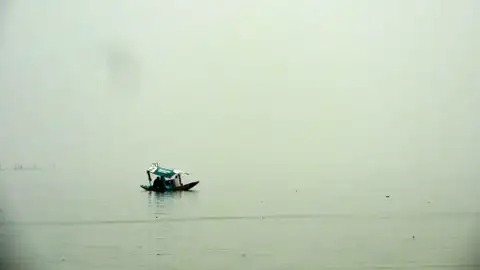J&K Continues to Experience Severe Cold, With Srinagar Recording Minus 4.8 Degrees
Mercury continued its free fall in the valley on Wednesday as the Meteorological (MeT) office forecast cloudy weather with snowfall at isolated higher reaches in Jammu and Kashmir during the next 24 hours.
The MeT office statement said, “On January 15 and 16, generally cloudy sky with light snow at isolated higher reaches during 16th early morning. From January 17 to 19, generally a cloudy sky, but no significant change is expected till January 19. On 20 and 21st of January, a generally cloudy sky with light snow at isolated to scattered places is likely to occur.”
The department issued an advisory: “Tourists/travellers/Transporters are advised to follow Admin/Traffic advisory.”
The lowest recorded temperatures were – 4.8 degrees Celsius in Srinagar city, minus 7.4 degrees in Gulmarg, and minus 8.4 degrees in Pahalgam. The weather in the Jammu division’s plains did, however, generally get better.
The minimum temperature in Jammu City was 6 degrees, and the sun was shining brightly from the very first moment of the day.
The lowest temperature of the night was 6.8 degrees at Katra, Batote 2.1, Banihal – 1.5, and Bhaderwah minus 0.7 in the Mata Vaishno Devi base camp town.
The “Chillai Kalan,” a 40-day stretch of extreme winter cold that began on December 21 and will end on January 30, is wreaking havoc on the valley.
Over the past 25 days, the Kashmir Valley has seen severe cold waves because water tanks, pipes, and other sources of drinkable water freeze at night and must be defrosted in the morning.
Ponds, wells, streams, lakes, and springs are all partially frozen. It is challenging for fishermen and boatmen to navigate partially frozen bodies of water.
In order to stay warm throughout the winter, the locals rely largely on the “Pheran,” a loose tweed clothing, and the “Kangri,” an eastern firepot constructed in a willow wicker basket.
Physicians have advised people, particularly young people and the elderly, to avoid prolonged exposure to extremely cold temperatures because this might promote blood vessel constriction, which can result in myocardial infarction. Myocardial infarction patients are at risk for heart attacks and heart failure.




